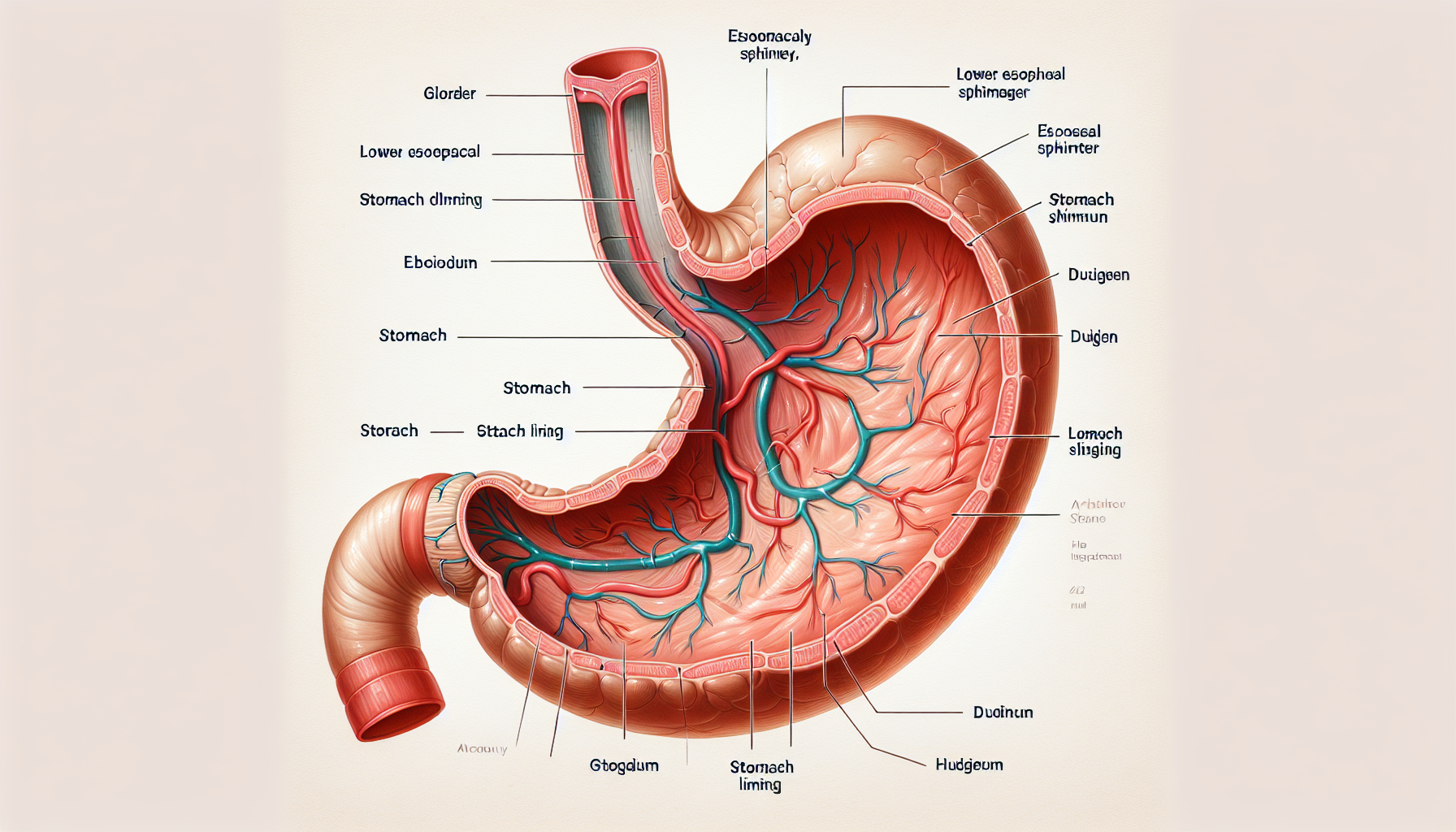Stomach acidity is a crucial aspect of the digestive system that affects overall health and wellbeing. The balance of acid in the stomach is vital for breaking down food, absorbing nutrients, and preventing infections. However, when the delicate balance is disrupted, it can lead to a range of health issues. Understanding the role of stomach acidity and how to maintain its optimal level is essential for promoting digestive health.
The Role of Stomach Acid in Digestion
Stomach acid, primarily hydrochloric acid (HCl), plays a significant role in the digestive process. It starts by breaking down the food we consume, particularly proteins, into absorbable nutrients. The acidic environment in the stomach also serves as a barrier against pathogens, reducing the risk of gastrointestinal infections.
For those looking to understand more about the digestive process and the importance of a balanced system, Understanding the Digestive System and Its Functions offers comprehensive insights.
The Consequences of Imbalanced Stomach Acidity
When stomach acidity is either too high or too low, it can lead to various conditions. Excess stomach acid often causes discomfort, such as heartburn or gastroesophageal reflux disease (GERD), and can damage the lining of the stomach and esophagus. On the other hand, low stomach acid can hinder digestion, leading to malabsorption, nutrient deficiencies, and increased susceptibility to bacterial overgrowth.
For those experiencing discomfort or symptoms of imbalanced acidity, it’s crucial to Identify and Manage Food Intolerances for Better Digestion.
Factors Affecting Stomach Acidity
Several factors can influence stomach acidity levels, including diet, lifestyle, medication, and medical conditions. Foods that are spicy, high in fat, or acidic can increase stomach acid production. Stress is also known to affect acid production, while certain medications, such as proton-pump inhibitors (PPIs), can lower stomach acid levels.
In understanding how lifestyle affects digestive health, one must consider The Link Between Exercise and Digestive Health, which explores healthy habits and their benefits on the digestive system.
Natural Ways to Balance Stomach Acidity
To maintain optimal stomach acidity, consider the following natural strategies:
- Dietary Adjustments: Incorporating alkaline foods such as vegetables and fruits can help neutralize excess acid. Reducing the intake of acidic foods, like tomatoes and citrus, and avoiding triggers like caffeine and alcohol may also be beneficial.
- Regular Meals: Eating smaller, more frequent meals can prevent the stomach from becoming too full and reduce acid production.
- Mindful Eating: Eating slowly and chewing thoroughly can aid in digestion and lead to less acid production.
When to Seek Professional Help
If natural methods do not alleviate symptoms of acid imbalance, it’s essential to seek medical advice. A healthcare professional can provide tailored recommendations and prescribe medications if necessary. For more information on digestive health and related topics, Digestive Health is a valuable resource.
Advanced Interventions for Managing Stomach Acidity
In some cases, over-the-counter antacids or prescription medications may be necessary to manage stomach acidity. These medications can neutralize acid or reduce its production. However, they should be used with caution as long-term use can lead to side effects like nutrient deficiencies and an increased risk of bone fractures.
The Importance of a Balanced Diet
A balanced diet plays a vital role in maintaining stomach acidity levels. Foods rich in dietary fiber, such as whole grains, can improve digestion and reduce acid reflux symptoms. Probiotic foods like yogurt and kefir can also support a healthy gut microbiome, which is linked to better digestive health.
External Resources for Further Information
- The International Foundation for Gastrointestinal Disorders provides detailed information on conditions related to stomach acidity and digestive health.
- The American College of Gastroenterology offers guidelines and patient education materials on managing acid-related disorders.
- For a deep dive into the latest research on stomach acidity, the National Institute of Diabetes and Digestive and Kidney Diseases is an excellent source.
Closing Thoughts
Balancing stomach acidity is essential for optimal digestive health. By understanding its role, consequences of imbalance, and ways to maintain healthy levels, individuals can take proactive steps towards better health. Always consult a healthcare provider when symptoms persist or before making significant changes to diet or lifestyle.
By taking a holistic approach that includes dietary choices, lifestyle changes, and, when necessary, medical intervention, you can achieve a well-balanced digestive system that supports your overall health and wellbeing. Remember, the key is not only to treat symptoms but to address the underlying causes of acidity imbalance for long-term health benefits.



